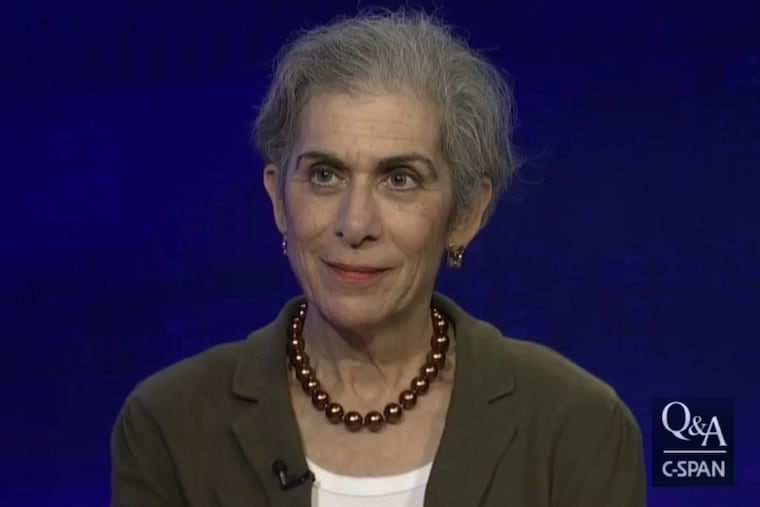A federal judge dismissed the lawsuit brought by controversial University of Pennsylvania law professor Amy Wax against the Ivy League school, in which she claimed to have been subjected to discrimination because she is a “white Jewish woman.”
Wax’s lawsuit also claimed that Penn’s speech policies “violate core principles of the First Amendment.” But District Judge Timothy J. Savage rejected the idea that the case was about free speech.
“As much as Wax would like otherwise, this case is not a First Amendment case,” Savage wrote in an opinion dated Wednesday. “It is a discrimination case brought under federal antidiscrimination laws.”
The judge said Wax “failed to allege facts that show that her race was a factor in the disciplinary process” that led to her one-year suspension, among other sanctions.
Savage found that Penn did not discriminate against Wax when the university disciplined her for making racist comments because antidiscrimination laws “protect speakers, not speech.”
Wax failed to prove discrimination based on speech because she didn’t speak on behalf of a protected class, even though her comments related to race.
“To characterize her comments as supportive of those she criticized and denigrated is not plausible,” Savage said.
The judge also wasn’t convinced that Wax was discriminated against because she is a white Jewish woman. In court filings, Wax compared her speech and its consequences to that of seven Penn faculty and staff who weren’t sanctioned for comments that the law professor characterized as antisemitic.
But the comparison between Wax and those speakers fails, the judge wrote, because she again focuses on speech and not the speaker. And nearly all of the comments Wax cited were related to current events.
“She was sanctioned for harmful speech directed at specific demographics in the University,” Savage said. “The remarks of her purported comparators were not antisemitic; they were critical of Israel’s treatment of Palestinians.”
Penn declined to comment on the litigation. Wax’s attorneys did not immediately respond to a request for comment.
Wax has been facing scrutiny for controversial statements on immigration and race for nearly a decade. She was barred from teaching mandatory first-year courses in 2018 after she questioned the intelligence of Black students.
Over the years Penn faced calls from within its community and from lawmakers to revoke Wax’s tenure.
In September, Penn announced that Wax would be suspended for the 2025-26 academic year, among other sanctions, after a five-member board of tenured faculty found that the professor committed a “major infraction” and had a history “of sweeping, blithe, and derogatory generalizations about groups by race, ethnicity, gender, sexual orientation, and immigration status.”
In March, Wax’s legal team asked the court to issue a preliminary injunction preventing the sanctions from taking effect. The sanctions include one-year suspension at half pay with benefits, a public reprimand, the loss of her named chair, and summer pay. Savage rejected that motion in June.
The judge dismissed Wax’s breach of contract and false light claims but allowed the law professor to attempt to litigate those counts in the future.
But when it came to the discrimination counts, Savage closed the door on any further litigation, saying “there is nothing Wax can add that would make her discrimination claims plausible.”
